 W
WWystan Hugh Auden was an Anglo-American poet. Auden's poetry was noted for its stylistic and technical achievement, its engagement with politics, morals, love, and religion, and its variety in tone, form, and content. Some of his best known poems are about love, such as "Funeral Blues"; on political and social themes, such as "September 1, 1939" and "The Shield of Achilles"; on cultural and psychological themes, such as The Age of Anxiety; and on religious themes such as "For the Time Being" and "Horae Canonicae".
 W
WFélix Rubén García Sarmiento, known as Rubén Darío, was a Nicaraguan poet who initiated the Spanish-American literary movement known as modernismo (modernism) that flourished at the end of the 19th century. Darío has had a great and lasting influence on 20th-century Spanish literature and journalism. He has been praised as the "Prince of Castilian Letters" and undisputed father of the modernismo literary movement.
 W
WJibanananda Das was an Indian poet, writer, novelist and essayist in the Bengali language. Popularly called "Rupashi Banglar Kabi'', Das is the most read poet after Rabindranath Tagore and Kazi Nazrul Islam in Bangladesh and West Bengal. While not particularly recognised initially, today Das is acknowledged as one of the greatest poets in the Bengali language.
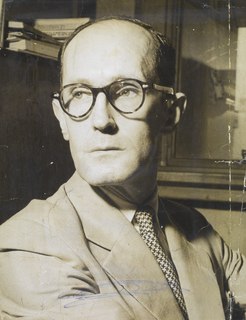 W
WCarlos Drummond de Andrade (October 31, 1902 – August 17, 1987) was a Brazilian poet and writer, considered by some as the greatest Brazilian poet of all time. He has become something of a national cultural symbol in Brazil, where his widely influential poem "Canção Amiga" has been featured on the 50-cruzado novo bill.
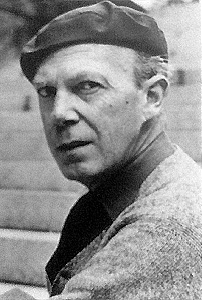 W
WBengt Gunnar Ekelöf was a Swedish poet and writer. He was a member of the Swedish Academy from 1958 and was awarded an honorary doctorate in philosophy by Uppsala University in 1958. He won a number of prizes for his poetry.
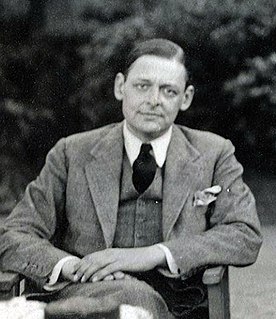 W
WThomas Stearns Eliot was an American-born British poet, essayist, publisher, playwright, literary critic and editor. Considered one of the 20th century's major poets, he is a central figure in English-language Modernist poetry.
 W
WLeah Goldberg or Lea Goldberg was a prolific Hebrew-language poet, author, playwright, literary translator, and comparative literary researcher.
 W
WElsa Grave was a Swedish novelist, poet and artist.
 W
WMoyshe-Leyb Halpern was a Yiddish-language modernist poet. He was born and raised in a traditional Jewish household in Zlotshev, Galicia and brought to Vienna at the age of 12 in 1898 to study commercial art. He then began writing modernist poetry in German. Upon returning to his hometown in 1907, he switched to writing in Yiddish. One of his best-known poems is a satire about his hometown.
 W
WMaxwell Henley Harris AO, generally known as Max Harris, was an Australian poet, critic, columnist, commentator, publisher, and bookseller.
 W
WJulio Herrera y Reissig was a Uruguayan poet, playwright and essayist, who began his career during the late Romanticist period and later became an early proponent of Modernism.
 W
WAndrea Heuser is a German writer, poet, translator and literary scholar.
 W
WRut Gunhild Hillarp was a Swedish poet and novelist. She is remembered for her modernist poetry evoking the difficulties of achieving sexual relationships in a man's world.
 W
WImagism was a movement in early-20th-century Anglo-American poetry that favored precision of imagery and clear, sharp language. It has been described as the most influential movement in English poetry since the Pre-Raphaelites. As a poetic style it gave modernism its start in the early 20th century, and is considered to be the first organized modernist literary movement in the English language. Imagism is sometimes viewed as "a succession of creative moments" rather than a continuous or sustained period of development. René Taupin remarked that "it is more accurate to consider Imagism not as a doctrine, nor even as a poetic school, but as the association of a few poets who were for a certain time in agreement on a small number of important principles".
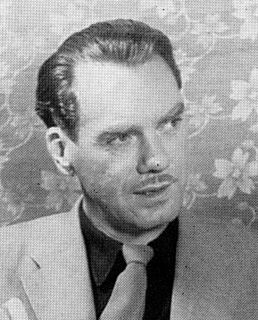 W
WNils Artur Lundkvist was a Swedish writer, poet and literary critic. He was a member of the Swedish Academy from 1968.
 W
WChristopher Murray Grieve, best known by his pen name Hugh MacDiarmid, was a Scottish poet, journalist, essayist and political figure. He is considered one of the principal forces behind the Scottish Renaissance and has had a lasting impact on Scottish culture and politics.
 W
WMurilo Monteiro Mendes was a Brazilian Modernist poet, considered to be one of the forerunners of the Surrealist movement in Brazil.
 W
WShahabuddin Nagari is a modern poet of Bangladesh, who appeared in the 1970s and gained pre-eminence as a lyricist. According to literary critic Abdul Mannan Syed, "Shahabuddin Nagari is one of those few powerful poets of 1970s whose mastery of mixing romanticism with instinct is amazing". As of February 2016, he has published more than 75 titles. Nagari is most noted for his songs and works for the children. He was a senior bureaucrat of the government of Bangladesh. In 1971, he actively participated in the liberation war of Bangladesh.
 W
WFernando António Nogueira Pessoa was a Portuguese poet, writer, literary critic, translator, publisher and philosopher, described as one of the most significant literary figures of the 20th century and one of the greatest poets in the Portuguese language. He also wrote in and translated from English and French.
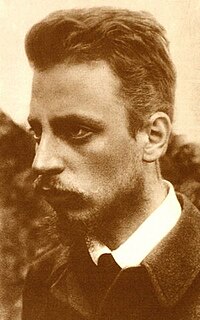 W
WRené Karl Wilhelm Johann Josef Maria Rilke, better known as Rainer Maria Rilke, was a Bohemian-Austrian poet and novelist. He is "widely recognized as one of the most lyrically intense German-language poets". He wrote both verse and highly lyrical prose. Several critics have described Rilke's work as "mystical". His writings include one novel, several collections of poetry and several volumes of correspondence in which he invokes images that focus on the difficulty of communion with the ineffable in an age of disbelief, solitude and anxiety. These themes position him as a transitional figure between traditional and modernist writers.
 W
WMário de Sá-Carneiro was a Portuguese poet and writer. He is one of the best known authors of the "Geração D'Orpheu", and is usually considered their greatest poet, after Fernando Pessoa.
 W
WShathel Taqa,, an Iraqi poet, diplomat and politician. He is one of the pioneer founders of the School of Modern Arabic Poetry, which emerged in Iraq in the late 1940s and early 1950s.
 W
WGeorg Trakl was an Austrian poet and the brother of the pianist Grete Trakl. He is considered one of the most important Austrian Expressionists. He is perhaps best known for his poem "Grodek", which he wrote shortly before he died of a cocaine overdose.
 W
WJohn Allan Wyeth was an American military intelligence officer during World War I, a war poet, composer, and painter. Wyeth wrote poetry from an early age. After the Armistice of November 11, 1918, Wyeth lived in Europe, mixed with other members of the Lost Generation, and became known as a war poet.
 W
WWilliam Butler Yeats was an Irish poet, dramatist, prose writer and one of the foremost figures of 20th-century literature. A pillar of the Irish literary establishment, he helped to found the Abbey Theatre, and in his later years served two terms as a Senator of the Irish Free State. He was a driving force behind the Irish Literary Revival along with Lady Gregory, Edward Martyn and others.
 W
WKazimiera Zawistowska de domo Jasieńska, pseudonym Ira, (1870–1902) was a Polish poet and translator.